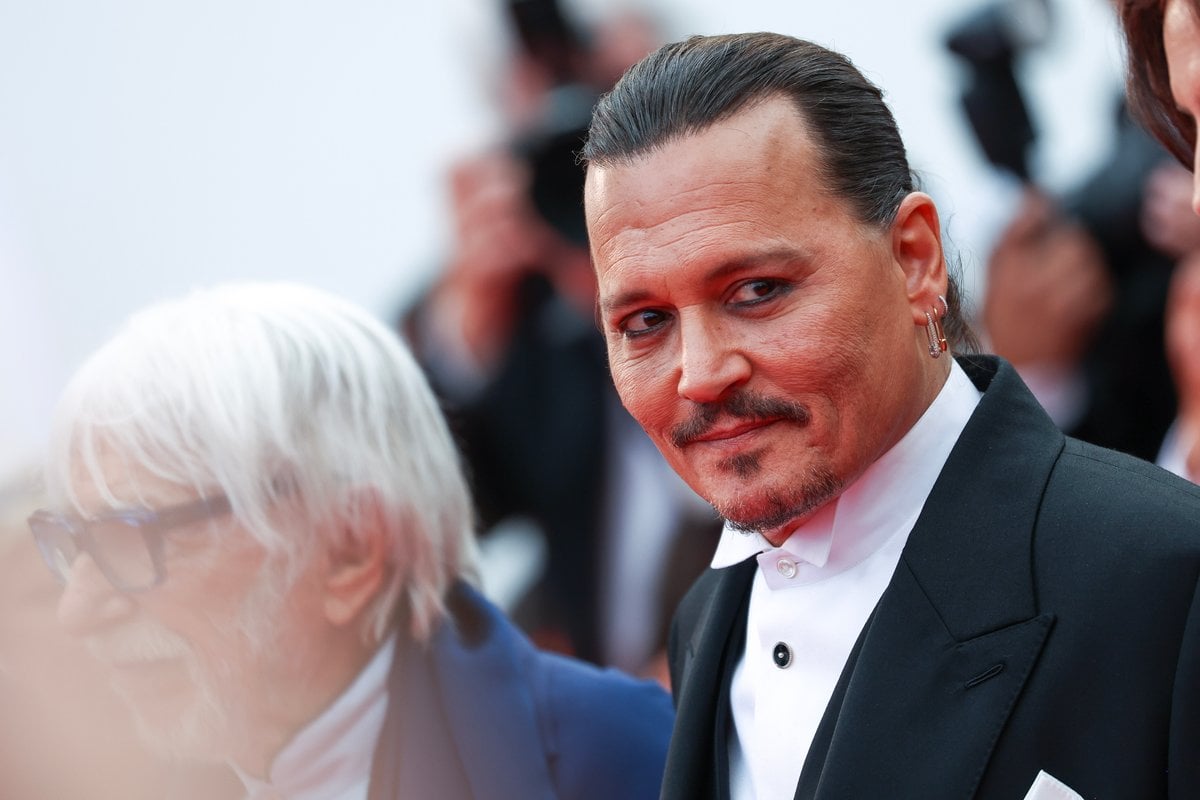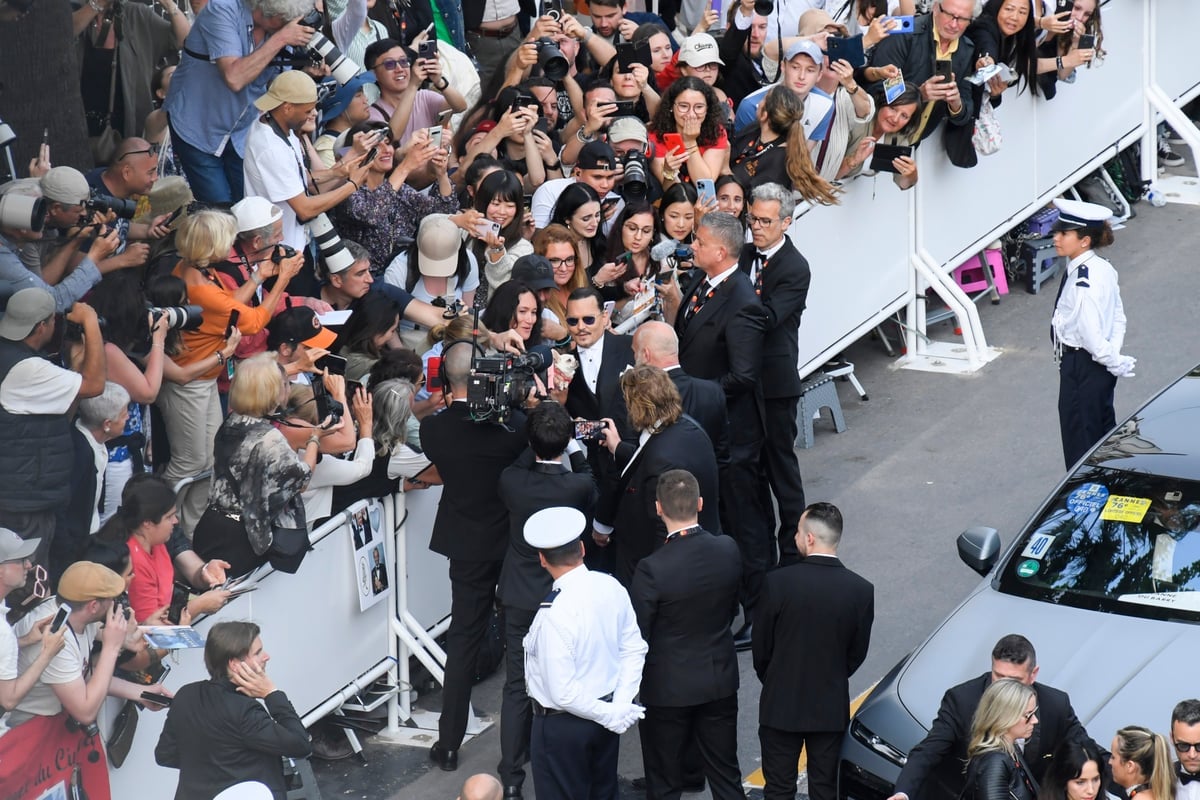
As Johnny Depp entered the theatre ahead of his film screening at the Cannes Film Festival, the crowd was on its feet.
They stood again afterwards, when the showing of French filmmaker Maïwenn's new project Jeanne du Barry wrapped up, applauding the stars for seven minutes.
According to reporters in the room, Depp held back tears as the crowd clapped for his 'comeback' performance as King Louis XV in the biographical drama, which opened this year's festival. He waved to audiences in the balcony and according to Variety, seemed taken aback by the response.
He needn't have been.
Earlier in the night, Depp had arrived on the red carpet in the South of France to similar fanfare.
Thousands of fans lined outside the Palais des Festivals, cheering and trembling as they caught glimpses of the 59-year-old actor. Depp, flanked by security, signed autographs and posed for pictures for more than five minutes before walking the carpet.
As he did, a sign reading 'Viva Johnny' hung from a balcony above the street, and crowds continued to shout his name over and over, The Hollywood Reporter noted.
All the hoopla was at odds with the critical reception for Jeanne du Barry, with initial reviews published soon after offering scattered rather than rapturous applause.
Variety described Depp's performance as being "adequate but not especially engaged". The Hollywood Reporter said he "offers a few early thrills and then mostly yawns, with Depp dishing out what feels like a total of a dozen lines in respectable French, while otherwise remaining mute", while Indiewire said he "leaves a strangely scant impression, offering a dim and muted turn".

